PATH OF BLOOD: An Unshakable Viewing Experience (& Interview With Director Jonathan Hacker)
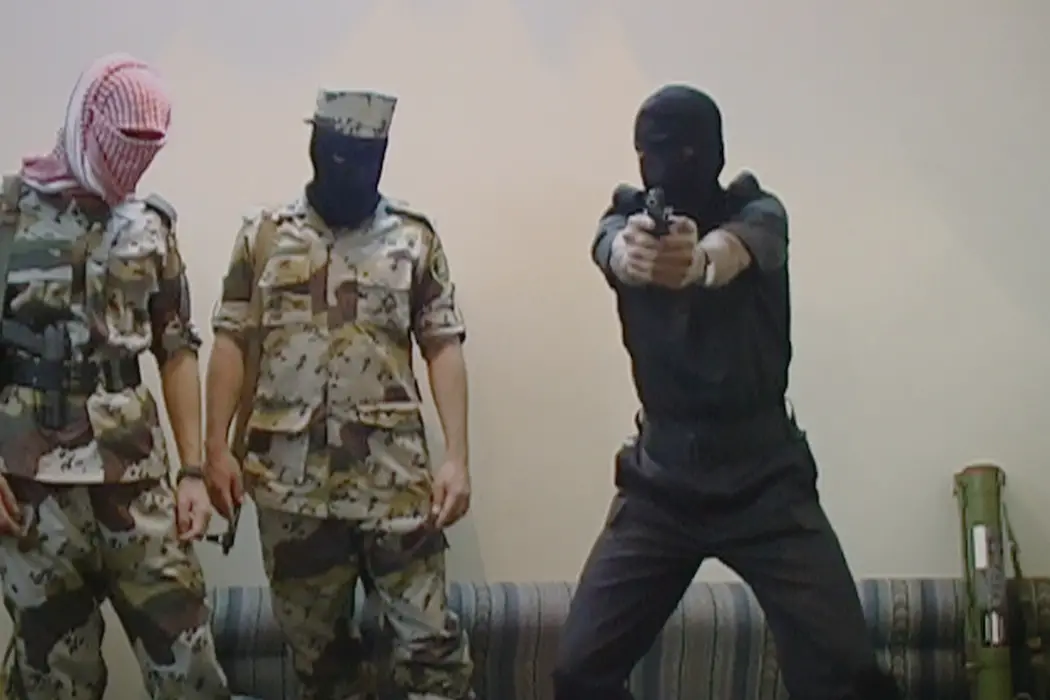
Kristy Strouse is the Owner/Editor in Chief of Film Inquiry,…
With his newest documentary, Path of Blood, director Jonathan Hacker takes an alternative approach to capturing the bold subject matter of Islamic extremists. In a rare move, the film is told entirely with a compilation of unseen, archived footage, most of which was shot in Saudi Arabia by the terrorists themselves. This provides an unprecedented look behind the curtain.
There’s also footage taken of surveillance, feeds of the destruction after attacks, and Saudi special forces and police, as they raid terrorist safe houses. The combination is raw, but effective. There are no interviews, or excessive commentary. This is the real deal, which makes this an unsettling film, to say the least. One that – by the end – might make you question what you thought you knew and will most definitely leave you reeling.
Naivety And Destruction
This footage, which includes content that humanizes the participants, something I hadn’t personally seen before, is eye-opening. Consider one particular scene: a group of youngsters are playing, racing with wheelbarrows. Or a scene, where a fighter is preparing to make a statement prior to a suicide bombing, but they can’t get it right. The participants keep talking, forgetting what they want to say, something that plays out like the bloopers you get in the special features on a film DVD. Only this is fundamentally different because we’re glimpsing something lighthearted before the storm. It’s difficult to watch this side, knowing that the intended next step is murder. When this scene begins, at the start of the documentary, you’re caught off kilter, which makes the following sequences burst with trepidation.
What’s most chilling about Path of Blood is in the earnestness with which these jihadists make their proclamations. In the opening of the film, they begin with a video before an intended car bombing. It’s said that these are “the humble radiant faces of men devoted to their religion” as they pose with their weapons, proud. It’s heartbreaking.
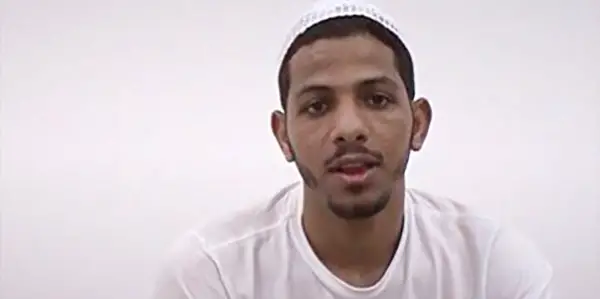
It’s in these small moments that you catch yourself wondering, how did they get to this point? There’s such youth, and such possibility, but ultimately they’re groomed for suffering. It is especially heartbreaking because the children are brought up on the guise of brainwashing, corrupted so young that their journey as a misguided martyr is a sense of pride to them. There are very small children playing with guns, practicing, while others laugh as if it’s a completely innocent gesture.
Throughout the film there are loads of distressing content, including their plans, gunfire, explosions, shots of the carnage, and speeches about the mission to “destroy the infidels.” I won’t sugarcoat the sensation, because it’s incredibly rapt to see, but also disheartening.
This is not easy to swallow.
Al-Qaeda As You’ve Never Seen Before
Documentarian Jonathan Hacker threads the needle with aptly chosen frames, keeping the audience engaged, without ever losing the strength of the material, which speaks for itself. Over the course of the film, we see the extremists for what they are: dangerous, but there’s more fluidity than just a square portrait of a villain. Which makes it more terrifying.
Within Path you also get to see American, Paul Marshall Johnson Jr, as he’s held hostage and interrogated by the Islamic militants, and eventually executed. While the murder isn’t shown visually, there’s an impossible to avoid gut-wrenching moment, as we see the questioning. The same can be said for a child being told how to correctly execute a prisoner. What climbs out of these moments is pure horror.
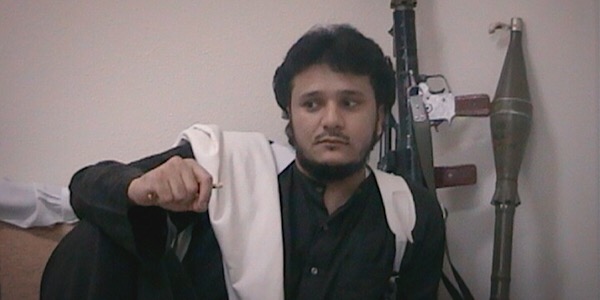
Path of Blood does humanize these jihadists, but it doesn’t soften the blow; if anything, it makes their acts that much harder to stomach. It’s a reality that makes it challenging to watch, because there’s no escapism. It’s much like other documentaries, except this one takes it a step farther, using solely candid footage. The frequently foreboding score guides the images with intensity.
It’s objectivity might keep some viewers from becoming completely transfixed, and the occasional narration sometimes seems daunting, but overall the piece is memorable because its ugliness is real. It also shows the damage, and those within Saudi Arabia trying to strike down the terrorism within their lands. Hacker doesn’t take sides, just delivers the captured footage for you to decide. Can you really argue with that?
Conclusion: Path Of Blood
While the footage goes all the way back to 2003, a film like this couldn’t be more relevant. Terrorists exist, now, and we’re still trying to understand their motives. Path of Blood peels back the black masks and gives us a visceral and frightful look.
This is Kristy Strouse with Film Inquiry. Thank you for taking the time to answer some questions for us. I saw your film and I thought it was very good, unlike anything I’d seen before.
Can you tell us a bit about your history, how you became interested in this subject matter? Where it started?
Jonathan Hacker: I’d made an investigative feature documentary for the BBC previously on similar subject matter, called Britain’s First Suicide Bombers. It is a fascinating area. Islamism is the political movement of our age – just as communism was in the twentieth century.
How did this specific project begin? Such as the idea, the awareness of the videos?
Jonathan Hacker: Getting access to the footage – CSI style videos shot by the police and security services and the amazing captured Al Qaeda footage – was down to the executive producers of the film, in particular Abdulrahman Al Rashed. “AR” is a highly respected journalist in the region – ex-editor of Asharq al Awsat, the Arab world’s largest paper, and ex General Manager of the news channel, Al Arabiya.
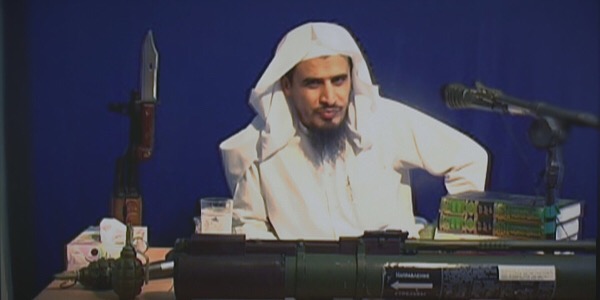
As soon as I heard about the footage I knew it would be eye opening, but it was only when we started to view the footage and get it translated that we realised that it was a gold mine full of jaw-dropping moments.
You also wrote a book of the same name.
Jonathan Hacker: The security services were prepared to give us briefings and allowed us to interview members of the special forces and police chiefs. With all this information, we realised that we could tell the story of a whole Al Qaeda campaign from start to finish.
I took a creative decision early on that the book would contain the context, background, and analysis, and that the film would be primarily a story. The two mediums are so different, I wanted to play to their strengths.
How much video was there to go through?
Jonathan Hacker: The combined footage was approximately 500 hours. It was a massive process wading through it all. Logging it; identifying who was in the footage, and translating it. Much of it was slang and there were a lot of regional accents that made matters harder. Much of the footage was repetitive and boring but thoroughness was key. The off-hand moments, the outtakes are where the gems lie hidden.
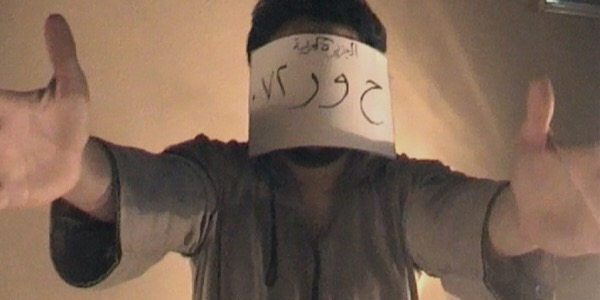
I agree, those are the most memorable. Can you walk us through the steps/process of creating it? Can you tell us about the choice to have the entire documentary rely solely on the footage? How did you choose what made it into the documentary?
Jonathan Hacker: The fact that the footage offered these two radically different perspectives enabled me to construct a classic cat and mouse thriller. But I didn’t want to use interviews and commentary as a traditional documentary might. Instead I wanted the film to remain as un-editorialised as possible. There were a number of reasons for that. I wanted to let the audience feel like they are in each scene with the protagonists. It is more immersive and creates a lyrical dream-like quality. I didn’t want accusations of bias or editorialising. The footage could speak for itself.
Most importantly, I wanted the film to have a universal quality; young men getting caught up in simplistic religious or political movements where they feel that they are fulfilling some kind of destiny is not confined to Al Qaeda/ ISIS.
Thank you for sharing, and congratulations on the film.
We want to thank Jonathan Hacker for taking the time to speak with us.
The film was released in the US and UK on July 13th. For more information on the film click here.
Does content like this matter to you?
Become a Member and support film journalism. Unlock access to all of Film Inquiry`s great articles. Join a community of like-minded readers who are passionate about cinema - get access to our private members Network, give back to independent filmmakers, and more.
Kristy Strouse is the Owner/Editor in Chief of Film Inquiry, writer, podcaster, and all around film and TV fanatic. She's also Head of Acquisitions at Tricoast Worldwide and is a member of The Online Association of Female Film Critics and The Hollywood Creative Alliance. She also has a horror website: Wonderfully Weird & Horrifying.













